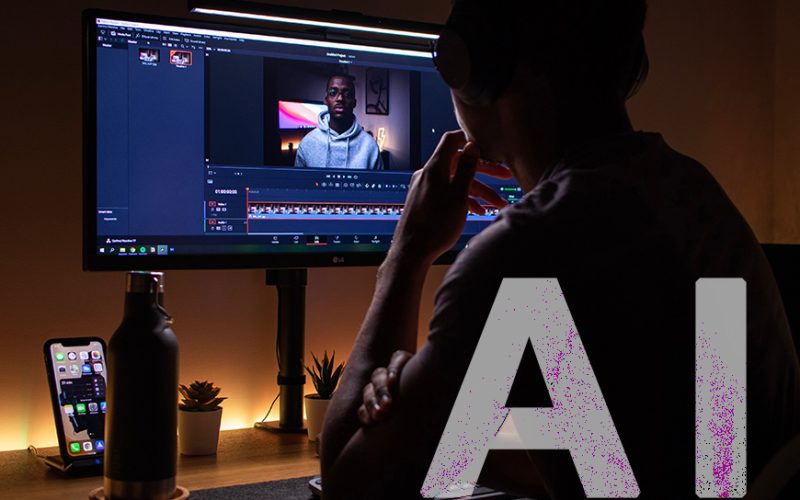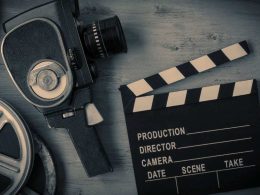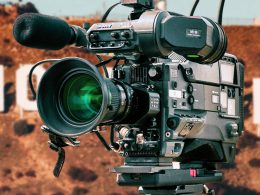Introduction
The film industry has always been at the forefront of technological innovation. From the transition to sound and color to the advent of digital effects, each leap forward has redefined the boundaries of storytelling. Today, Artificial Intelligence (AI) is the latest technology to make waves in film editing and production. This article explores how AI is revolutionizing the film industry, focusing on AI Film Editing and its impact on various aspects of filmmaking.
The Evolution of Film Editing
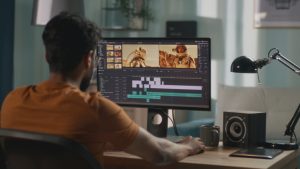
-
Traditional Film Editing
Film editing has historically been a labor intensive process. Editors would manually splice together reels of film, painstakingly crafting a narrative frame by frame. The introduction of digital editing tools like Avid and Adobe Premiere Pro streamlined this process, allowing for greater flexibility and precision.
-
The Advent of AI in Film Editing
AI Film Editing represents the next significant leap in this evolution. By leveraging machine learning algorithms, AI can analyze vast amounts of footage, identify patterns, and even suggest edits. This not only speeds up the editing process but also opens up new creative possibilities.
How AI is Transforming Film Editing
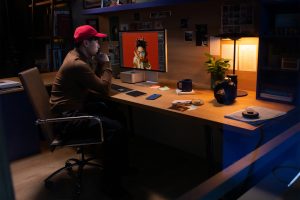
-
Automated Editing
One of the most significant advantages of AI Film Editing is automation. AI can quickly sort through hours of raw footage, identifying key scenes and even suggesting cuts. This allows editors to focus on the creative aspects of their work rather than getting bogged down in the minutiae.
Case Study: IBM Watson
IBM’s Watson has been used to create trailers for films. By analyzing the emotional arcs and visual elements of a movie, Watson can generate a trailer that captures the essence of the film. This not only saves time but also ensures that the trailer is engaging and effective.
-
Enhanced Visual Effects
AI can also be used to enhance visual effects. Machine learning algorithms can generate realistic CGI, remove unwanted elements from a scene, and even color-correct footage. This allows filmmakers to achieve a level of visual fidelity that was previously unattainable.
Example: Deepfake Technology
Deepfake technology, which uses AI to superimpose one person’s face onto another’s, has been used in various films to create realistic visual effects. While this technology has ethical implications, it also offers exciting possibilities for filmmakers.
-
Improved Sound Editing
Sound is a crucial component of any film, and AI is making significant strides in this area as well. Machine learning algorithms can analyze audio tracks, removing background noise, and enhancing dialogue. This results in a cleaner, more immersive sound experience.
Application: Adobe’s Project VoCo
Adobe’s Project VoCo is an AI-driven tool that can edit speech in audio recordings. By analyzing a person’s voice, the software can generate new speech that matches the original. This can be incredibly useful for dubbing, voiceovers, and correcting dialogue.
AI in Film Production

-
Pre-Production
AI is not just limited to editing; it is also transforming the pre-production phase of filmmaking. From script analysis to casting, AI can streamline various aspects of pre-production.
-
Script Analysis
AI algorithms can analyze scripts to identify themes, emotional arcs, and even potential plot holes. This allows writers and directors to refine their scripts before shooting begins.
-
Casting
AI can also assist in casting by analyzing actors’ previous performances and matching them with roles that suit their strengths. This ensures that the right talent is chosen for each part, enhancing the overall quality of the film.
-
Production
During production, AI can be used to optimize shooting schedules, manage logistics, and even control camera movements.
-
Optimized Shooting Schedules
AI can analyze various factors like weather conditions, actor availability, and location logistics to create an optimized shooting schedule. This minimizes downtime and ensures that the production stays on track.
-
Autonomous Cameras
AI-driven cameras can automatically adjust settings like focus, exposure, and framing based on the scene’s requirements. This allows for more dynamic and visually appealing shots.
The Ethical Implications
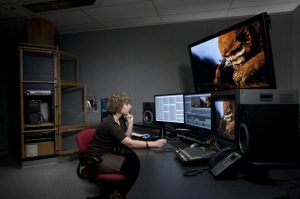
-
Job Displacement
One of the primary concerns with the rise of AI in film editing and production is job displacement. As AI takes over tasks traditionally performed by humans, there is a risk that jobs will be lost.
-
Creative Control
Another concern is the potential loss of creative control. While AI can assist in various aspects of filmmaking, it is ultimately a tool. The human touch is still essential for creating compelling stories.
-
Data Privacy
AI relies on vast amounts of data to function effectively. This raises questions about data privacy and the ethical use of personal information.
The Future of AI in Film Production
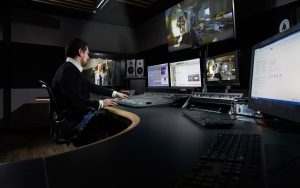
AI is undeniably revolutionizing film editing and production, offering unprecedented efficiency, creative possibilities, and technical enhancements. As technology continues to advance, AI will play an increasingly central role in shaping the future of filmmaking.
From streamlining workflows and enhancing production efficiency to expanding creative opportunities and improving visual and audio quality, AI is transforming the way movies are made and experienced. As filmmakers and industry professionals embrace these innovations, they will need to navigate the ethical and creative challenges that come with integrating AI into their work.
The future of film production is poised to be shaped by the dynamic interplay between human creativity and artificial intelligence, leading to new forms of storytelling and cinematic experiences. As we look ahead, it is clear that AI will continue to be a driving force in the evolution of the film industry, unlocking new possibilities and pushing the boundaries of what is possible in filmmaking.
Conclusion
AI is undeniably revolutionizing film editing and production. From automated editing and enhanced visual effects to improved sound editing and optimized shooting schedules, AI is transforming every aspect of filmmaking. While there are ethical considerations to address, the potential benefits are immense. As AI continues to evolve, it will undoubtedly open up new creative possibilities, making the future of filmmaking more exciting than ever.
By embracing AI Film Editing and other AI-driven technologies, filmmakers can push the boundaries of storytelling, creating richer, more immersive experiences for audiences worldwide.






